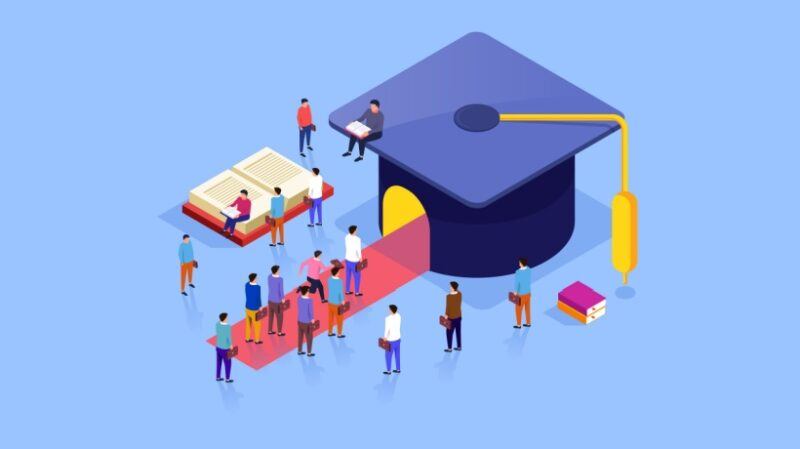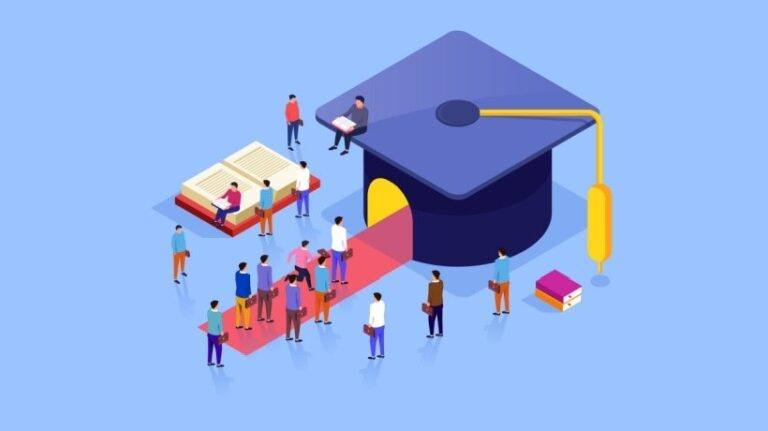
How OER is transforming higher education in 2025
The future of education is evolving rapidly. In 2025, higher education is driven by innovative tools and strategies that make learning more accessible, engaging and affordable. One of the most important trends shaping this transformation is the rise of open education resources (OERs).
As the demand for affordable education solutions grows, OER is revolutionizing access to knowledge by providing students with free, high quality educational materials from around the world. This shift doesn’t just save money. It is about creating a culture of collaboration, inclusivity and innovation in the academic ecosystem.
But what is the role of OER in higher education today? How do these resources shape the trends in higher education in 2025? Let’s dig deeper into the important impact on the future of learning.
What are open educational resources?
An OER refers to freely accessible and openly licensed educational materials that can be used, modified and distributed to enhance learning. These resources include textbooks, lecture notes, research papers, videos, and interactive modules. The key characteristics of the OER are:
Affordable prices
Eliminate the cost of traditional textbooks and resources. Customizability
Allows educators to tailor content to achieve specific course goals. Accessibility
It provides global access to knowledge regardless of economic or geographical barriers.
In the 2025 higher education context, these attributes make OER the basis of modern academic practices.
How will the OER shape higher education in 2025?
Promoting affordable educational solutions
Traditional higher education often comes with exorbitant costs, especially with textbooks and unique learning tools. According to the report, the average student spends over $1,200 a year on textbooks alone. The OER eliminates this burden and enables universities to provide affordable educational solutions without compromising quality. By 2025, there is a hope that the universal adoption of OER policies across higher education institutions will ensure high quality education is accessible to everyone.
Strengthening of the collaborative learning platform
Collaborative education is the future and focuses on community-driven learning [1]. The OER supports this by fostering a collaborative learning platform where students, educators and researchers collaborate to create and improve educational content. These platforms allow educators to share, review and co-create resources and bridge gaps between institutions. This collaborative approach leaves content dynamic, up-to-date and reflecting diverse perspectives.
Promoting digital transformation in higher education
As digitalization accelerates, the role of OER in technology-integrated learning cannot be overstated. Institutions are increasingly adopting cloud-based repositories to host OERs, enabling seamless access and scalability. These technologies allow educators to integrate OER into learning management systems (LMSS), adaptive learning tools and mobile applications. This allows resources to be accessed anywhere at any time. By incorporating OER into the technology ecosystem, universities can reduce costs associated with their own content and promote a more agile and responsive learning environment tailored to the digital age.
Furthermore, the synergy between OER and emerging technologies such as artificial intelligence (AI) and data analytics redefine personalized learning. The AI-powered platform leverages OER to recommend tailored learning paths, track student performance and provide real-time feedback. This helps transform traditional classroom models into dynamic, interactive experiences.
Blockchain technology, a decentralized and secure digital ledger system, is also emerging as a game changer. This allows for transparent, tamper-proof certifications of OER-based certifications, ensuring reliability of academic outcomes and strengthening trust in digital learning.
Advance fairness and inclusiveness in learning
The OER promotes equity and inclusiveness in learning by providing free and accessible customizable educational materials to all students regardless of their socioeconomic background. By eliminating the high costs of textbooks and unique content, OERs provide equal access to quality resources for learners in underprivileged communities. Additionally, OER promotes inclusiveness by providing adaptable content that can be localized and tailored to a diverse range of cultural and linguistic needs. This flexibility allows educators to create accessible materials for students with disabilities and promote a learning environment that supports everyone equally.
Encourage lifelong learning
The rapid pace of technological change means that more skilled and reskilling is important than ever. The OER is driving this shift by providing free and easy access resources to lifelong learners. The university is increasingly integrating its OER with its microcresincial programme, providing students with flexible and affordable learning pathways. For example, Open University’s OpenLearn platform has seen a 400% increase in website visits since introducing professional development courses alongside OER. [2]. This surge clearly shows the growing demand for accessible, high-quality learning materials.
In addition to the increased traffic, OpenLearn reported 1.8 million registrations in the busiest month of 2020, with 1 in 4 visitors enrolling in the course. In particular, almost 50% of those enrolled completed the course, resulting in around 927,000 course completions. Additionally, 76,000 digital badges are awarded, demonstrating learners’ outcomes in a particular subject area and ability. These badges act as verifiable credentials and allow learners to introduce new skills to employers and institutions. This retention rate will be an essential tool for promoting long-term engagement, highlighting the effectiveness of OERs in supporting ongoing professional development, and promoting lifelong learning in higher education.
Challenges and solutions in OER adoption
Despite this possibility, OER adoption is not without challenges. Addressing these is important for long-term success in higher education.
1. Quality Assurance Challenge
Ensures the quality and accuracy of OER materials. Solved
Implement a rigorous peer review process and maintain high standards using established assessment tools. 2. Time and effort challenges
Time and effort required for adaptation, recruitment, and author OER. Solved
Provide teachers with resources and support from education designers and librarians to make the process easier to manage. 3. Digital Divide Challenge
Restricted access to the technology required and internet connection. Solved
Invest in infrastructure and provide students with the devices and internet access they need, bridging the digital divide. 4. Licensing and Copyright Issues
Understand and navigate licensing issues. Solved
It educates faculty and students about Creative Commons licenses and provides clear guidelines on how to use and adapt OER. 5. Sustainability challenges
Ensuring the long-term viability of the OER initiative. Solved
Ensures ongoing funding and institutional support to maintain the OER program. 6. The challenges of recognition and perception
The lack of recognition and recognition of OERs is inferior to commercially available materials. Solved
Promote the benefits of OER by presenting workshops, success stories and examples of high-quality OERs.
As we embrace the future of education, the possibilities for OERs to empower learners, educators, and institutions are endless. By overcoming challenges and leveraging innovative technologies, OERs are paving the way for a more equitable, accessible and sustainable academic future. The message is clear for educators, policy makers and students too. OERs are not just resources, they are revolutionary ways to teach, learn and collaborate. The question is not whether it will shape higher education, but how can we leverage the possibilities of building a better world.
References:
[1] Five challenges of joint education and EDTECH solutions
[2] Annual reports show a rapid increase in free online learning
Mrcc edtech
Mrcc Edtech Pioneers Digital Learning Solutions k-12, Higher Education, Publishers, and Edtech companies. With over 25 years of expertise, we create a comprehensive, high-quality academic ecosystem that drives student growth and empowers educators.


